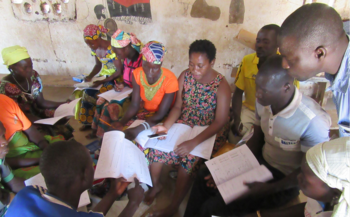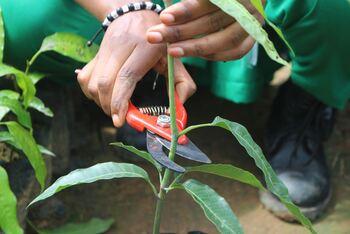Context
Due to its geographical location and ecological diversity, Cameroon has considerable potential for agriculture and livestock. Agriculture makes a crucial contribution to economic development. It accounts for over 20 per cent of the primary sector in gross domestic product (GDP) and 55 per cent of export earnings. It also provides the largest share of active employment. The company structures are characterised by small-scale family farms.
Nevertheless, overall yields are low and marketing channels are seasonal. Livestock farming is directly affected by the loss of natural pasture resources resulting from human impact and climate change. Likewise, there is also a lack of places where animals can drink. Climate change reduces yields and makes cultivation and land use planning more difficult. Overall, more than half of the rural population is considered poor. Food insecurity affects more than one fifth of rural households (around 22 percent). Malnutrition in women and chronic undernourishment in children are widespread.
Rural development is an area of focus in Cameroonian politics. Nevertheless, the potential in production and livestock has not been exploited very much so far. Frequent use is made of traditional knowledge and experience which have not been adapted very much to the changed economic and ecological conditions. The productivity of agriculture and livestock in the regions and Adamaoua is very low and non-resource efficient.


